This is not a bluff: Vladimir Putin deploys nuclear threat
Vladimir Putin warns Russia is prepared to use its nuclear arsenal as he mobilises 300,000 reservists for his war with Ukraine.
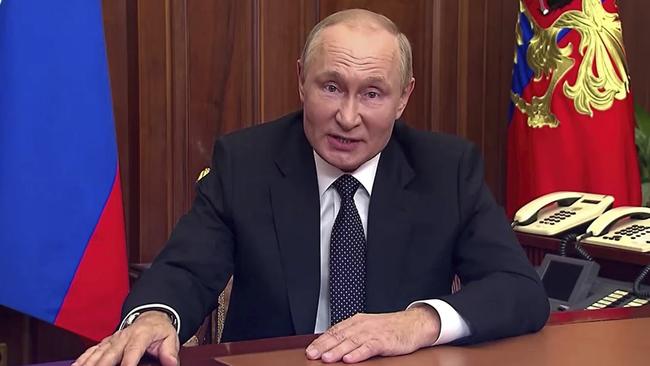
Vladimir Putin has warned Russia would be prepared to use its nuclear arsenal to defend its territory as he dramatically escalated his war with Ukraine, mobilising 300,000 reservists to join the fight in response to the country’s humiliating battlefield defeats.
The Russian President declared in a national address on Wednesday that his country would use “all available means at our disposal” to protect itself against a Western plot to “destroy” it, as the Kremlin moved to annex occupied territories in Ukraine’s Donbas region.
Beijing – which this year established a “no limits” partnership with Moscow – responded by calling for a ceasefire and peace talks.
“We call on the relevant parties to realise a ceasefire through dialogue and consultation, and find a solution that accommodates the legitimate security concerns of all parties,” China’s foreign ministry spokesman Wang Wenbin said.
A week after Russian forces retreated from Ukraine’s northeast amid a fierce counter-offensive by defending troops, Mr Putin warned Ukraine and its Western allies that Moscow was preparing to hit back against attacks on territory he claimed as the “motherland”.
“When the territorial integrity of our country is threatened, we will certainly use all the means at our disposal to protect Russia and our people. This is not a bluff,” Mr Putin said.
“Those who are trying to blackmail us with nuclear weapons should know that the wind can also turn in their direction.”
The Russian leader said the mobilisation of troops was partial, stopping short of a full national draft that could spark a public backlash against his leadership.
Responding to the announcement, Ukraine’s ambassador to Australia, Vasyl Myroshnychenko, declared: “Putin is desperate. Partial mobilisation won’t be popular among the Russian people.”
Russian Defence Minister Sergei Shoigu said 300,000 reservists would be called up, warning they were just a small fraction of the number of potential military recruits at the country’s disposal.
In a rare acknowledgment of military losses by Moscow, Mr Shoigu said 5937 Russian soldiers had died in Ukraine since the launch of the military intervention in February – well short of Western estimates of up to 15,000 Russian dead. Mr Shoigu overturned the fiction that Russia was fighting a “special military operation” in Ukraine, rather than an all-out conventional war.
“I cannot help but emphasise that today we are at war not only with Ukraine and the Ukrainian army, but with the collective West,” Mr Shoigu said.
In the videotaped address, Mr Putin said the mobilisation of reservists was “necessary and urgent” because the West had “crossed all lines” by providing sophisticated weapons to Ukraine.
He accused top NATO officials, without evidence, of declaring it would be acceptable to carry out nuclear strikes on Russia.
“To those who allow themselves such statements, I would like to remind them, Russia also has many types of weapons of destruction, the components of which in some cases are more modern than those of the countries of NATO,” Mr Putin said.
Foreign Minister Penny Wong was in New York on Wednesday night for the UN general assembly and was unavailable for comment.
Her department said in a statement that Australia was “deeply concerned” by Mr Putin’s decision to mobilise reservists, and by his claims to be defending Russian territorial integrity.
“Russia should immediately withdraw from Ukraine and cease its illegal and immoral aggression against the Ukrainian people,” a spokeswoman said.
Military experts cast doubt on the likely effectiveness of the Russian call-up. Russia expert Dara Massicot, a senior policy researcher at the Rand Corporation, told Dow Jones that reservists would not solve Russia’s most pressing issue.
“You cannot grow highly trained personnel overnight, which is what they need,” she said.
Mr Putin said Russia’s main goal was the liberation of Ukraine’s Donbas region in the country’s east, where Moscow had announced annexation referendums. The votes, already denounced by Kyiv and the West as a sham, will up the stakes in the seven-month conflict by giving Moscow the ability to accuse Ukrainian forces of attacking Russian territory.
Four Russian-occupied regions of Ukraine – Donetsk and Luhansk in the east and Kherson and Zaporizhzhia in the south – said on Tuesday they would hold the votes over five days beginning on Friday.
Ukraine’s President Volodymyr Zelensky, who was due to address the UN on Wednesday, denounced the planned votes ahead of Mr Putin’s speech, saying his forces would drive Russian forces from the country regardless of the results.
White House National Security Adviser Jake Sullivan said the referendums were “an affront to the principles of sovereignty and territorial integrity”.
German Chancellor Olaf Scholz branded them a sham, and French President Emmanuel Macron called them a travesty.
The recent counteroffensive by Ukrainian troops took vast swathes of territory back from Russian forces, and delivered large amounts of abandoned military equipment into the hands of the defenders.
Mr Zelensky said in his nightly address that the situation on the front line “clearly indicates that the initiative belongs to Ukraine”.
“We enjoy the full support of our partners in this,” Mr Zelensky said. “So let’s maintain the pressure. Let’s preserve unity. Let’s defend Ukraine. We are liberating our land. And we are not showing any signs of weakness.”
British Defence Secretary Ben Wallace said Mr Putin’s decision to mobilise military reservists showed his invasion was failing.
“No amount of threats and propaganda can hide the fact that Ukraine is winning this war, the international community are united and Russia is becoming a global pariah,” Mr Wallace said.
The Russian call-up came as Ukrainian nuclear operator Energoatom accused Moscow of striking the Zaporizhzhia atomic power plant in southern Ukraine.
The strike damaged a power line causing the stoppage of several transformers of the plant’s number six reactor and forcing a brief start of emergency generators, Energoatom said.
Mr Putin blamed Ukraine for the strikes against the plant, which has been occupied by Russian troops since near the start of the war. Oil prices rose on the news of Moscow’s troop mobilisation and nuclear threats, with Brent crude jumping 2.9 per cent to $US93.46 a barrel.
Shares in European defence stocks traded sharply higher following Mr Putin’s comments. German armoured vehicle maker Rheinmetall AG traded 9.5 per cent higher. France’s Thales SA and Dassault Aviation SA traded 5.7 per cent and 5 per cent higher, respectively, while Italy’s Leonardo SpA gained 6 per cent.


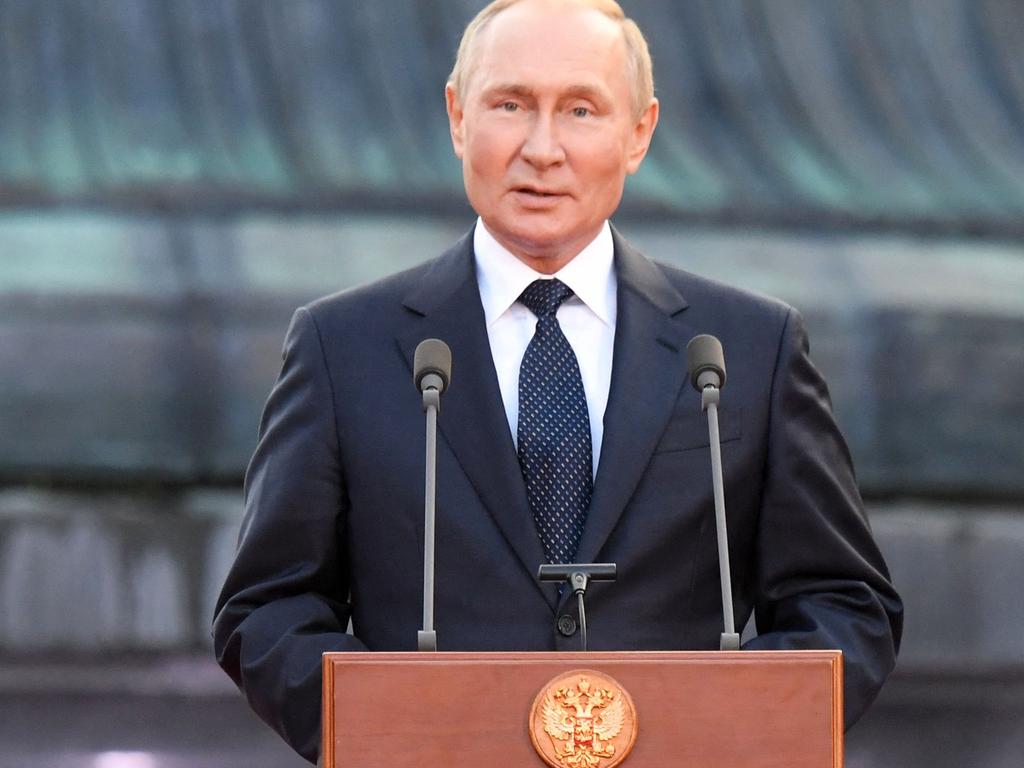
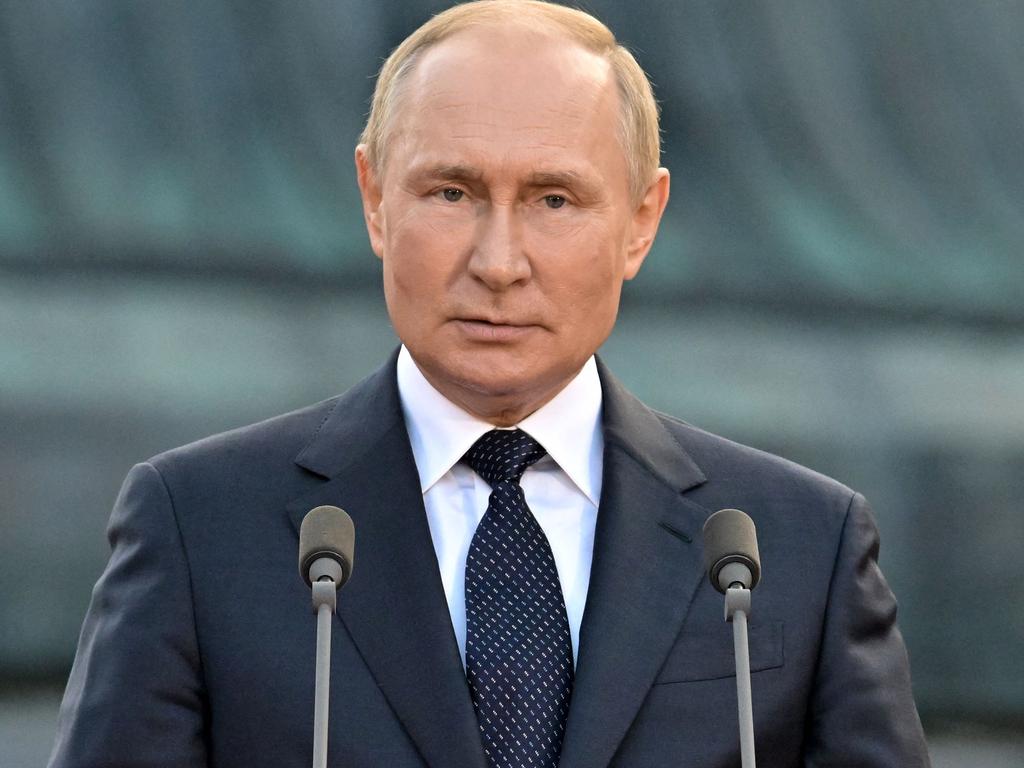
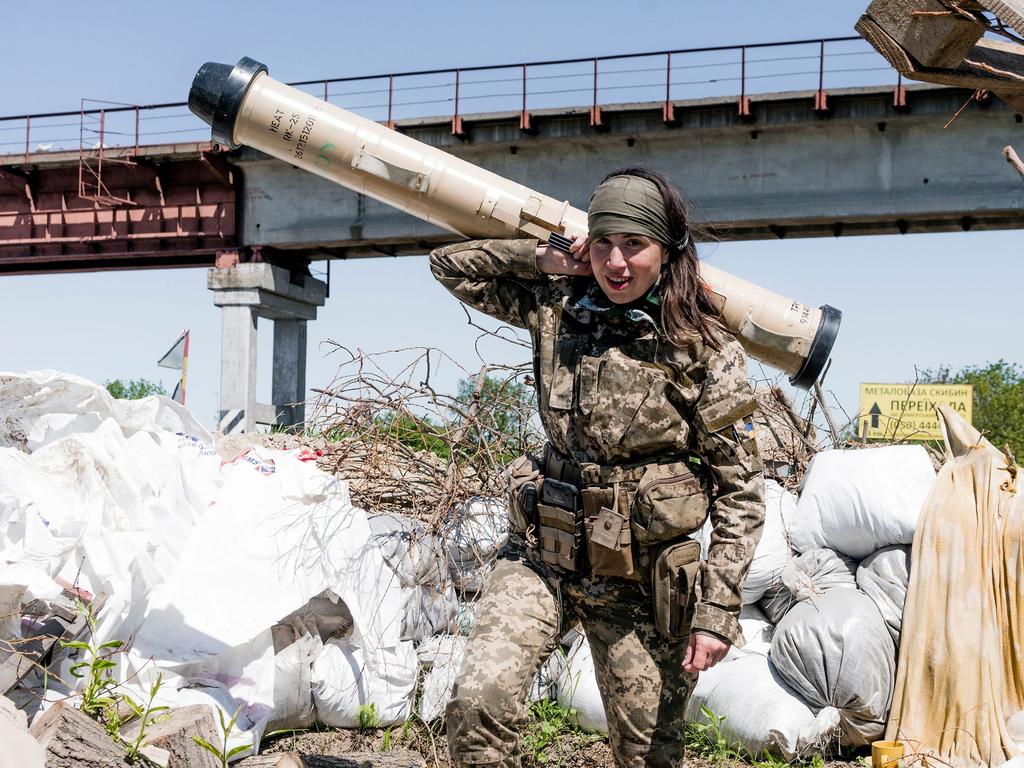
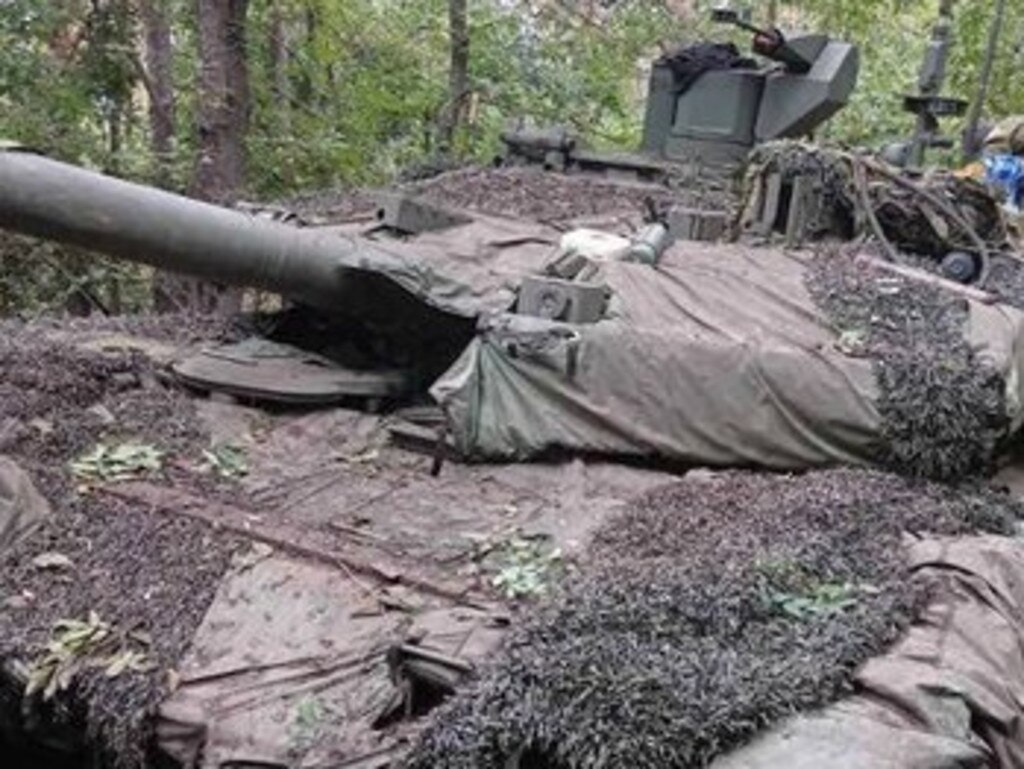


To join the conversation, please log in. Don't have an account? Register
Join the conversation, you are commenting as Logout